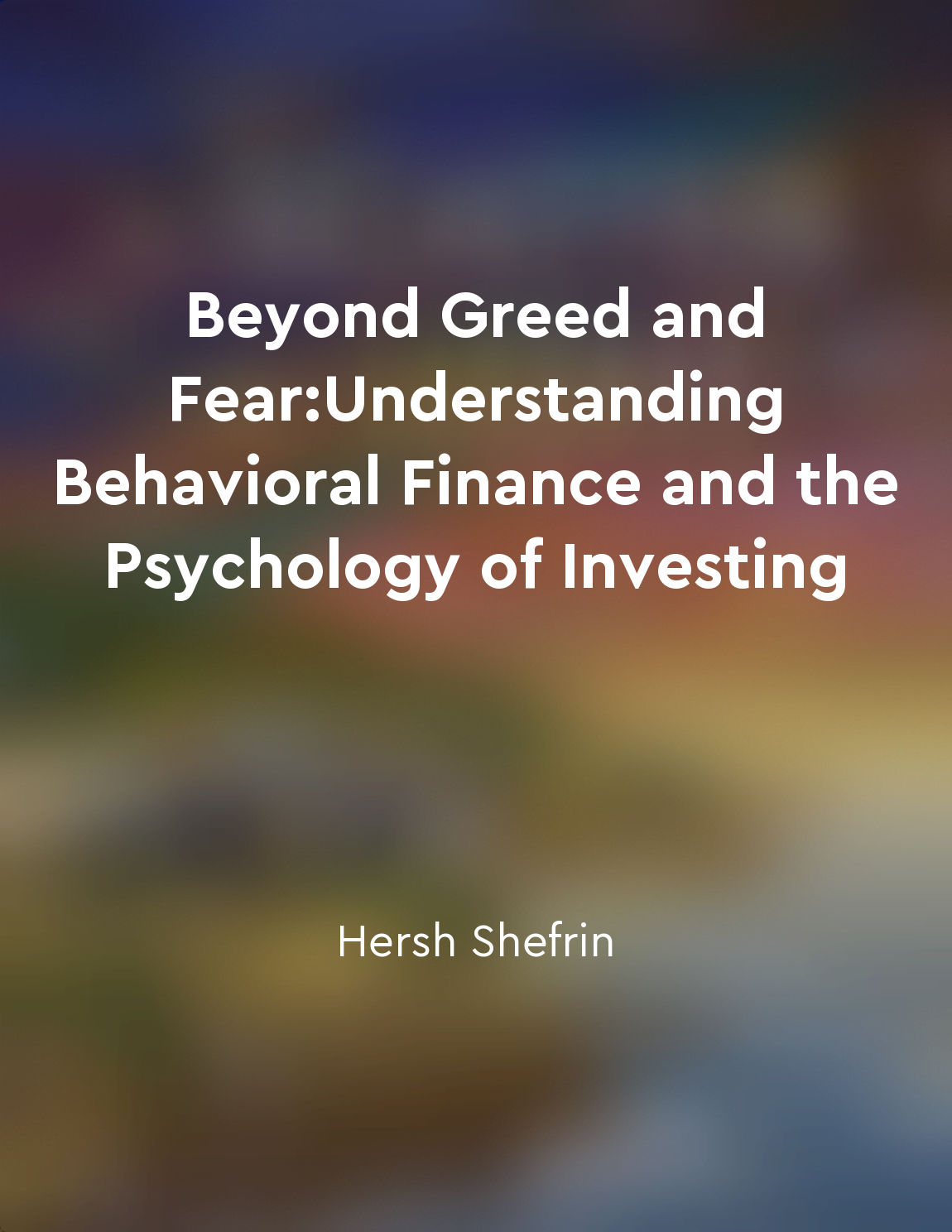Judgment is influenced by biases and heuristics from "summary" of Judgment in Managerial Decision Making by Max H. Bazerman,Don A. Moore
Judgment, as we navigate through the complex world of managerial decision making, is often clouded by biases and heuristics. These cognitive shortcuts and mental frameworks, while helpful in simplifying the decision-making process, can also lead us astray. Our perceptions and judgments are not always based on rationality or objectivity; they are shaped by our inherent biases and reliance on mental shortcuts. Biases, such as confirmation bias and overconfidence bias, can distort our judgment by leading us to seek out information that supports our preconceived notions and overestimating our own abilities. These biases can prevent us from considering all relevant information and evaluating it objectively. Heuristics, on the other hand, are mental shortcuts that help us make quick decisions based on limited information. While heuristics can be efficient in some situations, they can also lead to errors in judgment. For example, the availability heuristic causes us to give greater weight to information that is readily available in our minds, even if it is not necessarily the most accurate or relevant. Our judgment is further influenced by factors such as our emotions, past experiences, and social influences. Emotions can cloud our judgment by causing us to make decisions based on how we feel in the moment, rather than on a careful consideration of the facts. Past experiences can also bias our judgment, as we may rely on familiar patterns of thinking rather than exploring new possibilities. Social influences, such as groupthink and conformity, can further distort our judgment by leading us to conform to the opinions of others or to prioritize harmony over critical thinking. In the fast-paced world of managerial decision making, these biases and heuristics can have serious consequences. By becoming aware of these cognitive pitfalls and actively working to overcome them, we can make more informed and rational decisions that lead to better outcomes.Similar Posts
Building financial resilience is essential
Financial resilience is the ability to withstand financial shocks, such as losing a job or unexpected expenses, without signifi...
Anchoring can impact investment decisions
Anchoring refers to the tendency for individuals to rely heavily on the first piece of information they receive when making dec...

Regret aversion influences decisionmaking processes
Regret aversion is a powerful force that can significantly impact decision-making processes. People are often driven by a fear ...
The workplace is a circus
In the workplace, you can witness a performance that rivals any circus act you've ever seen. The clowns are the management, jug...
Celebrate successes and learn from failures
One of the most crucial aspects of becoming a successful CEO is the ability to recognize and appreciate your achievements, no m...

Practice empathy to connect with others
To truly connect with others, it is essential to practice empathy. Empathy is the ability to understand and share the feelings ...

Routines become automatic through practice
When we repeatedly perform a series of actions, our brains form neural pathways that make those actions easier to execute. This...
Differentiation is essential for organizations
Differentiation is a critical concept for organizations to understand and implement in order to achieve success in today's dyna...

Embrace agility and adaptability
Agility and adaptability are key concepts in the world of work today. In order to thrive in the fast-paced and ever-changing en...
Create a culture that values feedback and continuous improvement
When you create a culture that values feedback and continuous improvement, you're creating a culture that's always looking to g...
